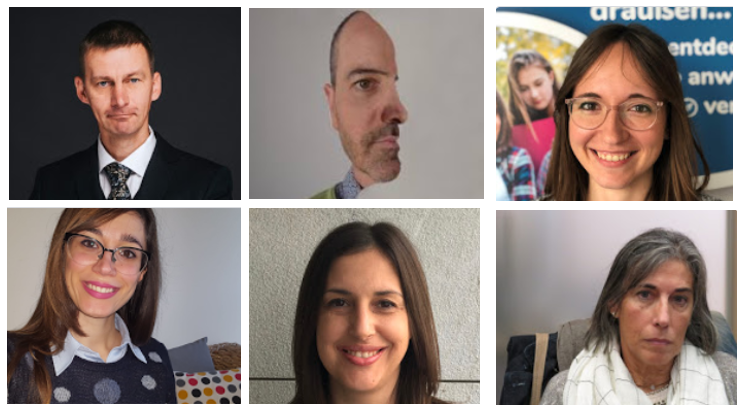
MathCityMap is a two component system. The first component is a webportal (www.mathcitymap.eu) which served as a open access database for authentic math problems in the environment. The other component, the MCM-App, shows on a map where in the environment the problems are hidden. Additional it provides hints, feedback and a sample solution. To solve such an authentic MCM problem you need mathematical modelling competencies.
The aim of the MOOC is to make the participants aware and autonomous of the potential of the MCM system, so be able to design own Math Trail Tasks and use them with their students. This is a concrete proposal for online training aimed at updating and improving one’s teaching practices. Sharing and the development of an online community is a very important aspect of the MOOC because collaborative learning models are more fruitful, not only for the students. The final aim is to create one’s own math trail, starting from the math tasks that will be designed during the MOOC weeks. All of this will be possible thanks to the use of the resources made available by the MOOC and the support of the instructors, in order to improve practices and renew teaching and make it functional to the new needs of 21st-century students.
Enrollment
Starting from Monday 15 February 2021, enrollment is open for the MaSCE3 MOOC: Task Design for Math Trails.
To enroll in the MOOC, you have to create an account on the DI.MA platform (http://dimamooc.unict.it/) by filling out the New Account form with your details and following the instructions that will arrive. Once logged in on the home page of DI.MA choose the course “MOOC: Task Design for Math Trails” and enroll.
If there are any problems during the enrolment process, please report them to the address:
MOOC Aims
The MOOC Task Design for Math Trails is designed for mathematics teachers of all school grades (from grade 1 to grade 13).
The MOOC has been designed and developed within the European MaSCE³ project. MaSCE³ stands for “Math Trails in School, Curriculum and Educational Environments of Europe” and is co-founded by the European Union. It is part of the Erasmus+ Programme, Key Action 2 – Strategic Partnerships under the number: 2019-1-DE03-KA201-060118.
The MOOC is delivered online, via the DI.MA. platform (http://dimamooc.unict.it/) managed by the University of Catania (Italy). This MOOC focuses on outdoor mathematics methodology that can be implemented through MathCityMap (MCM). MCM combine the math trail idea with the current technological possibilities of mobile devices.
Target Audience
Mathematics teachers from primary to higher secondary schools, eager to learn how to do mathematics outdoors, learning to use MathCityMap and to design their own tasks and trails to walk with their students both in their own neighbourhood and across Europe!
Duration
The MOOC is organised in 12 weeks in total as follows: a first week to enter the world of outdoor mathematics learning; 8 weeks in which you will design 8 math tasks that will then form a math trail; 3 weeks in which you will be able to accomplish the final homework, i.e. run your own math trail with your students and report back on this experience. The course requires a commitment of about 3 hours per week.
Beginning of the MOOC: 8th March 2021
Languages
The MOOC is in English.
However,
– the videos present have subtitles in the following languages: Estonian, French, German, Italian, Portuguese, Spanish;
– the math tasks and so the math trail can be produced in one of the following languages: Estonian, French, German, Italian, Portuguese, Spanish.
MOOC Instructors
Members of the MaSCE3 Project Partners, one from each consortium country (Estonia, France, Germany, Italy, Portugal, Spain). The instructors’ team is made of (in order by country): Andrus Rinde, Christina Mercat, Simone Jablonski, Eugenia Taranto, Elisabete Cunha, Claudia Lazaro.

Certification
At the end of each module, if all the homework it contains have been done, a badge will be issued certifying the skills acquired. With the completion of each of the MOOC modules and the final homework, a certificate will be issued as well as a digital badge guaranteeing that 30 hours of training have been achieved.
In addition, the best tasks will be honoured with badges. Learn more in this poster.
